Sign on the Window isn't the Bob Dylan podcast you need, but it's definitely the one that you want! Each week we select a Dylan song at random, live with the song for a week (or two) and then get together to discuss. This week is Dylan's classic, "With God on Our Side" from 1964.
This week we listen a few versions of the song through the years(6:20), its relation to "The Patriot Game" (19:00), before breaking down what Dylan is trying to achieve verse-by-verse (28:35).
Two weeks: We promise not to leave you here facing a wall...
CONTEXT (3:00)
Originally published as lyrics in *Broadside #27*, the song was first performed at Town Hall on April 12, 1963. He’d record the song in five takes on August 6, 1963. He’d play it once more the next day, producing the version that appeared on The Times They Are A-Changin’.
Dylan has only played this song 29 times total. He played it twice after the initial run in the 1960s up to 1988 (the year the Neville Brothers inexplicably made it a hit, and introduced some questionable changes to the lyrics): once during the Rolling Thunder Revue in Providence in 1975 and once in 1984. He last played it in September of 1995.
SONGS THEMSELVES (6:20)
Daniel and Kelly listened to the Town Hall debut, the November 4, 1975 Providence bootleg, the Unplugged version from 1994 and his duet with Joan Baez in Philadelphia on Halloween 1964.
Town Hall is interesting because he’s holding fire and he knows it. He’ll only play “Masters of War” following this, then perform “Last Thoughts on Woody Guthrie.” Quite late in an excellent set for a new song.
On the opposite end is Rolling Thunder. It’s not the best version but there isn’t another to choose from, which speaks to how quickly this song fell out of his rotation. However, it’s one confident number. Some lyrical changes: “murdered 12 million,” and “Learned to hate Russia…and China…and Korea…and Vietnam, Bulgaria, Cuba, South America…” He shaves off two full minutes and had time for a killer harmonica solo.
Unplugged is rather lame (especially given how great the performances for “Desolation Row,” "Shooting Star" and “Dignity” are) and listening to Dylan carelessly jump in and out of the song as Joan desperately tries to keep up isn’t fun to listen to. Dylan mask or no, it’s a dick move.
PATRIOT GAME (19:00)
Dominic Behan wrote “The Patriot Game” in 1957 after a young IRA member Fergal O’Hanlon was shot in an attack on the Dungannon Barracks. Bob Dylan heard it while in Europe in early ’60s and took the tune. If you haven’t heard Behan’s song, it’s kinda crazy. Naturally, Dylan chalks this up to the folk tradition and Behan is guilty too: the structure comes from “The Merry Month of May” and the tune from “The Nightingale” (Liam Clancy said Jo Stafford was singing this in 1948) and deeper into the past than we can divine.
However, when Behan heard Dylan’s version, he confronted Bob. Dylan told him, “My lawyers can speak with your lawyers.” Behan replied, “I’ve got two lawyers, and they’re on the end of my wrists.”
Behan was pissed about it years later, especially after Dylan condemns bootlegging during an interview for the 1985 Biograph boxset. Behan responded:
Bob should know all about such piracy.
SONG ITSELF (28:30)
Musically, it’s Bob and a guitar. Kelly struggled with the frantic guitar that served as emphasis to the words. It does take getting used to because each work together to make the point. Which is?
Some people seemed to think that listening to songs should be like listening to dull sermons. I didn’t want my songs to be anything like that.Bob Dylan
It’s an epic reimagining of American history. It’s part of the seismic reorganizing of American historiography going on in the 1960s. Daniel breaks down verse by verse what may be going on, as well as some books to explore further.
From verse two, The cavalries charged, the Indians died: Daniel recommends the classic Virgin Land: The American West as Symbol and Myth, James Wilson’s The Earth Shall Weep: A History of Native America, and Roxanne Dunbar’s recent An Indigenous People’s History of the United States. T.J. Stiles, who I recommended before (and now) for Custer’s Trials: A Life on the Frontier of a New America wrote a brilliant essay, “How Do We Explain This National Tragedy? This Trump?”
As Anglo Americans expanded their borders, they encountered Native peoples who stood apart from this world-system (though they interacted with it). So they looked for other choices. At times, they selected genocide—a preconceived policy of extermination—largely obliterating Connecticut’s Pequots, for example, and many of California’s peoples. But they relied most on expulsion, or “Indian removal,” often after savage warfare. It was a major preoccupation of US leaders. George Washington ordered the destruction of scores of Iroquois villages in the War of Independence; Andrew Jackson and William Henry Harrison built political careers on Indian wars and expulsions; even Abraham Lincoln served in the Black Hawk War of 1832, which prevented Sac and Fox from returning east of the Mississippi. The United States stripped Mexico of half its territory in 1848, then struggled against resident Navajos and Apaches in wars lasting until Geronimo’s surrender in 1886. Indian removal ended in the reservation system, a peculiar kind of imprisonment. Reservations are internment zones not for individuals, but for nations. — T.J. Stiles
T.J. Stiles: How Do We Explain This National Tragedy? This Trump?
On the Spanish American and Civil War, Daniel turned to Season 1 and 1861 by Adam Goodheart, The Destructive War: Sherman, Stonewall and the Americans by Charles Royster and Grant by Ron Chernow. Also instructive, Ibram Kendi’s Stamped From the Beginning: The Definitive History of Racist Ideas in Americas released last year.
On the First World War and trying to understand why, Daniel recommended The Vanquished: Why the First World War Failed to End by Robert Gerwarth and Adam Hochschild’s To End All Wars: A Story of Loyalty and Rebellion, 1914-1918.
On the Second World War, the murder of six million Jews, and Germany’s forgiveness and ingratiation into the world order (and the irony of the German’s now too having God on their side): Black Earth: The Holocaust as History and Warning by Timothy Snyder and The Rise and Fall of the Third Reich by William Shirer.
On hating the Russians, the cold war, and unquestioned enemies that America always must have in the world to justify its existence, Dylan offers up this in Chronicles:
These were the same Russians that my uncles had fought alongside only a few years earlier. Now they had become monsters who were coming to slit our throats and incinerate us.
On the weapons of chemical dust and insanity of nuclear arms: The Age of Extremes: A History of the World, 1914-1991 by Eric Hosbawm and, the current read, FantasyLand: How America Went Haywire, a 500-year History by Kurt Anderson.
Of the brilliant Jesus/Judas verse, Clinton Heylin writes
Dylan, though, probably now wishes one could copyright an idea, since he would now be entitled to a share of the untold millions earned by Tim Rice and Andrew Lloyd Webber
Then there’s that incredible twist at the end where the words take you out of your complacency and confront your beliefs directly. If God’s on our side, He’ll stop the next war. Of course, this didn’t happen. God isn’t on our side. We know this but when you’re indoctrinated as a kid in school, it takes the right set of circumstances to break free from the critical cul-de-sacs you find yourself in. This song is nothing more than taking the road out of town and standing for something more than violence and nationalism.
THE EPISODE’S BOOKLET & PLAYLIST
RECOMMENDATIONS
Kelly has been finishing Unreal while Daniel has been listening to the new Titus Andronicus record, A More Productive Cough (which features a cover of “Like a Rolling Stone” where the you‘s are swapped to I‘s). And if there’s one final book to add to your list, I’d start with Chris Hedges’ War is a Force That Gives Us Meaning.
ENDINGS
There are 479 songs left.
Kelly guessed #222, “This Evening So Soon” off The Bootleg Series, Volume 10: Another Self Portrait. (If only we got this sooner, I wouldn’t have totally neglected to mention it in our review of "Tell Ol' Bill" later in the season.)
It’s #396. Our first from Another Side of Bob Dylan: "I Don't Believe You (She Acts Like We Never Have Met)."
Follow us wherever you listen to podcasts. See our real-time playlist See That My Playlist is Kept Clean on Spotify. Follow us intermittently on Twitter and Instagram.
Tell your friends about the show, rate and review wherever they let you, and consider supporting us by subscribing or at Patreon.







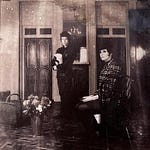
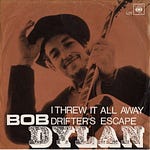
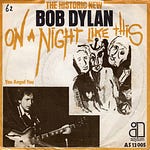

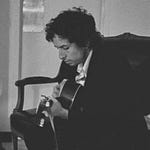
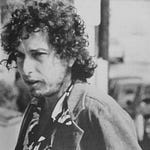

Share this post